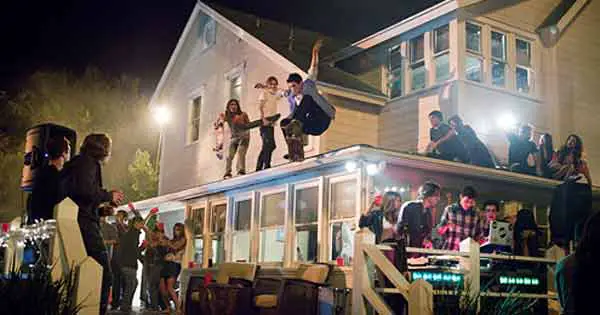Parents in Ireland have been warned that they need to be more aware of their teenagers’ activities on Facebook and Twitter following a ‘Project X’ style party in Cloyne, East Cork. The party ended with police being called in to take back control after an overwhelming amount of people attended having seen the party advertised online.

Project X is a 2012 movie about a group of teenagers who throw a party in an attempt to increase their popularity. They advertise the party online and are then powerless to stop the chaos that is caused by the hundreds of revellers that turn up.
Several arrests made in dispersing the crowd
Prior to the recent party in Cloyne, one teen tweeted a picture of a police riot squad with the caption; “Can see these boys making an appearance in Cloyne tonight.” The forecast proved to be close to the truth with police making several arrests as they attempted to disperse the crowd.
Following this latest episode in what has become a worryingly frequent trend, one of Ireland’s leading social media experts, Krishna De has spoken out to warn parents to take an interest in what their children are doing online. Not only to prevent situations like parties getting out of control but to protect them from other dangers such as online bullying and falling prey to paedophiles.
‘Lots of parents are just clueless’
De said: “What’s quite clear in my experience from talking to other parents is the fact that a lot of them are just clueless, that’s the word they use to describe themselves. They don’t understand social media or feel comfortable using it.
“Several years ago, it wasn’t just social networks, it was text messaging. We can’t necessarily protect every phone that they have. If you ask them to look at their Facebook page – how do you know they don’t have an alternative profile?
‘It’s important to build trust’
“A lot of it is around building our confidence, in terms of talking about it with our children. We have to ask questions like, ‘should we be doing things as parents like looking at our children’s Facebook pages? That comes back to the relationship we have with our children. It’s important to build trust with them.”
“Try referencing it (social media) in conversation. That’s the kind of conversation I try to have with my daughters, rather than flying off the handle when I hear about things like this party.”
